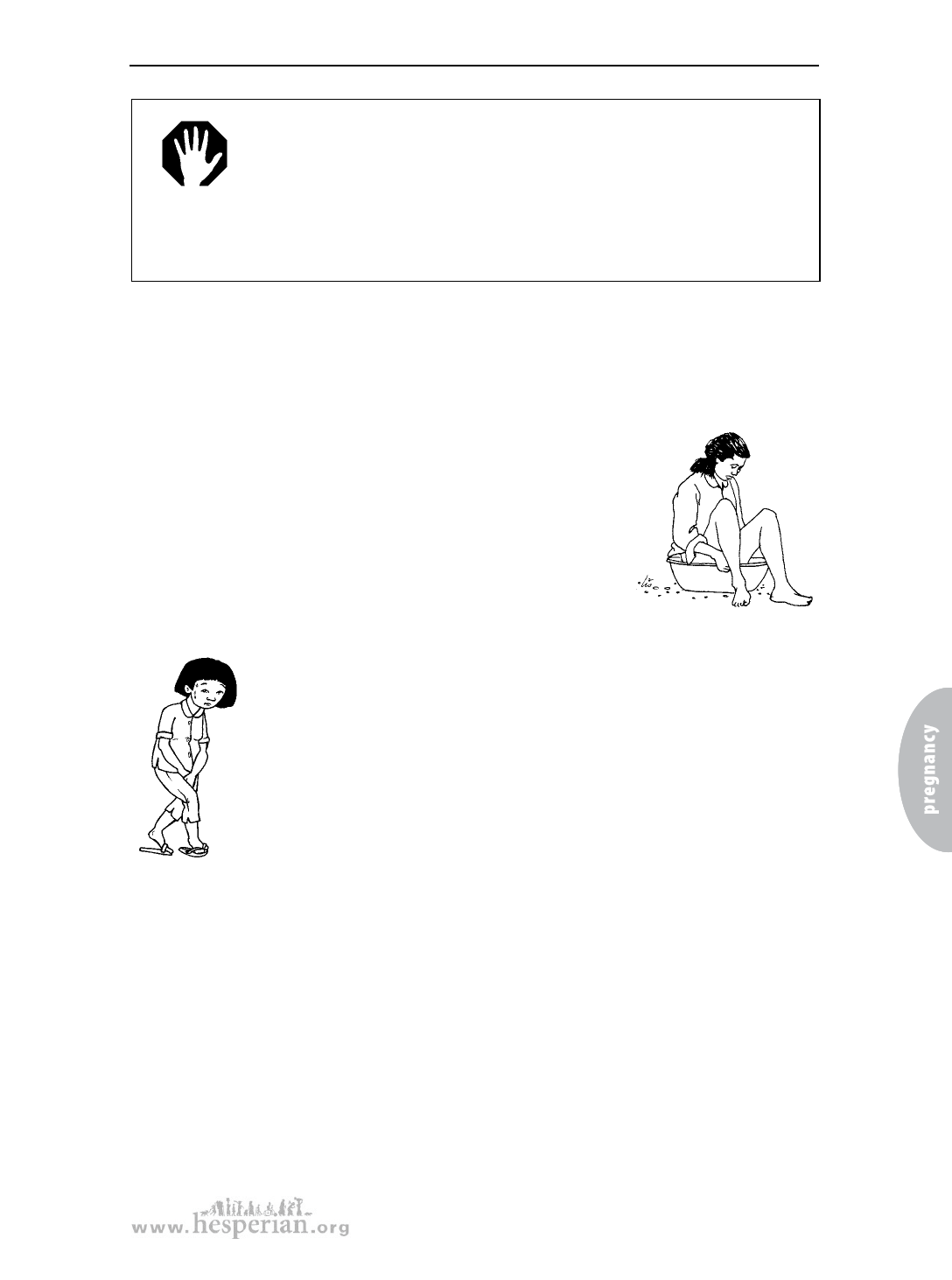
Body changes and discomforts
WARNING! Pregnant women should not take medicines called
laxatives or purgatives for constipation. These work by making
the bowels tighten or contract — and they may cause labor to
start too soon. Some can harm the baby.
Also, pregnant women should not wash out the bowels with
water (enema). This could also start labor too soon.
Hemorrhoids (piles)
Hemorrhoids are swollen veins around the anus. They may burn, hurt, or itch.
Sometimes they bleed when the woman passes stool, especially if she is constipated.
The woman should try to avoid getting constipated by eating a lot of fruit and
vegetables and drinking plenty of fluids.
Sitting or standing a lot can make hemorrhoids worse. But
sitting in a cool bath or lying down can help. Some women say
it helps to soak a clove of garlic in vegetable oil and then
insert it into the anus.
If you have heard of other remedies, ask an experienced
health worker whether they are safe. Some remedies are
dangerous for pregnant women and may hurt the baby.
Pregnant women
need to urinate
much more often.
Needing to urinate often
Needing to urinate (pee) often is normal, especially in the first
and last months of pregnancy. This happens because the
growing womb presses against the bladder (the place where the
body stores urine). It is so common that some midwives joke:
“A man who cannot find his pregnant wife should wait near the
place where she urinates. If she is not there, she will be soon!”
If urinating hurts, itches, or burns, the woman may have
a bladder infection (see page 128) or a vaginal infection
(see Chapter 18). Be sure to treat these infections right away —
they can cause early labor and other problems.
Discharge (wetness from the vagina)
Discharge is the wetness all women have from the vagina. A woman’s body uses
this discharge to clean itself from the inside. For most women the discharge
changes during their monthly cycle. Pregnant women often have a lot of
discharge, especially near the end of pregnancy. It may be clear or yellowish.
This is normal.
Changes in the discharge can be a sign of an infection if the discharge is gray,
green, lumpy, or has a bad smell, or if the vagina itches or burns (see Chapter 18).
A Book for Midwives (2010)
77